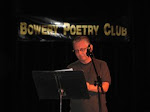Born in 1948, Selda Bağcan--better known as, simply, Selda--is an international sensation. I found this and a couple of her other albums at Uludag Video in Brooklyn, before they ceased importing CDs to focus solely on video. Her sixth studio album, this was originally released in 1979.
From the Anatolian Psych website (all grammatical issues, etc., sic):
"Selda Bağcan or Selda, was born in Muğla, Turkey ... a well renowned Turkish folk music singer, composer and politic activist.
Her protest style and leftist, socialist political views both in lyrical and activist means brought her a great support from the public yet caused many troubles with the military and governmental authorities. Selda Bağcan's lyrics demonstrate a political struggle as well as the problems and demands of working class and the public. Her satirical lyrics make critical references to contemporary politicians from both left and right-wings yet mostly criticizes the right-wing governments and imperialism.
She both composed her own songs and covered Turkish Folk songs. Bağcan's covers involve the usage of western instruments like acoustic guitar as well as traditional ones like saz or bağlama. Her modern and universal style in covering the traditional folk songs, involving a wide variety of musical styles from progressive and psych rock to traditional folk catches the attention of many music lovers who are into different genres of music. And because of her powerful and emotional voice, she is known as (and she calls herself) bitter sound of Turkish people.
She has started her musical career when she was a student at Ankara University, Faculty of Sciences, Department of Engineering Physics. The first two singles had sold around one million and following this success she somehow had to choose music as a profession. She had gave concerts in many countries including Germany, Netherlands, France, England, Belgium, Denmark, Sweden, Norway, Switzerland, and Australia. Also attended to the Golden Orpheus 1972 representing Turkey with the request of Turkey Ministry of Foreign Affairs. She mainly performed on activities mainly organized by left wing foundations and initiatives. In 1973, for the first time she toured the Western Europe.
After the 1980 Turkish coup d'état, her activities were limited by the military junta and she had been arrested and jailed three times between 1981 and 1984. She couldn't attend to The WOMAD (Word of Music and Dance) Foundation Festival 1986, which was supported by Peter Gabriel, just because her passport had been seized. But the festival committee decided to add one of her songs to the official record of the festival. This record has helped her to receive many international invitations for festivals around the world. With the hard efforts of the WOMAD Foundation, the government returned Bağcan's passport in 1987. At the same year, she attended Rotterdam Art Festival (June 13), WOMAD and Glastonbury Festival (June 19), Jubile Gardens (June 20), Eurls Court (June 25), Capital Radio Festival (June 26). After her Western Europe tour in 1988, she gave local public concerts during 1989 and 1990. These concerts were free and hundreds thousands of people were gathered.
She lives in İstanbul and runs her own business under the name Majör Müzik Yapım (Majör Music Production) ..."
Listen to "Kaç Guzulu Ceylan"




































.jpg)





















































.jpg)

































